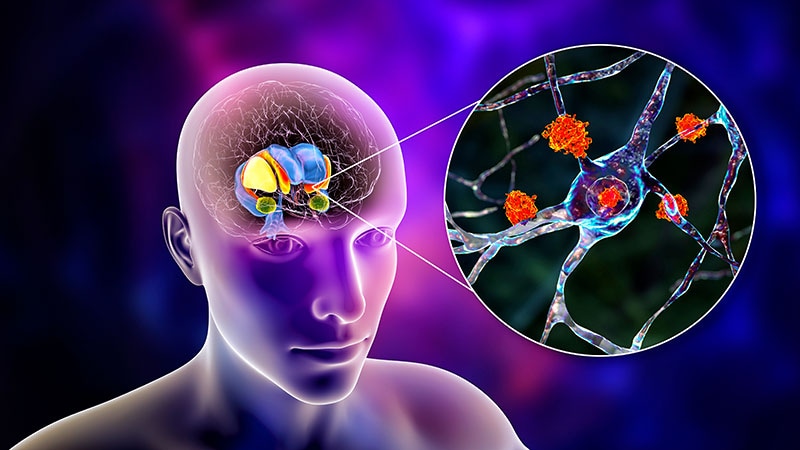Comprehensive Overview of Huntington's Disease: Diagnosis, Progression, Challenges, and Management
Temel Kavramlar
Huntington's disease is a progressive neurodegenerative disorder characterized by motor, cognitive, and psychiatric symptoms, caused by a genetic mutation affecting the HTT gene. Early diagnosis through genetic testing, multidisciplinary care, and emerging therapies are crucial for managing symptoms and improving quality of life for patients and their families.
Özet
The content provides a comprehensive overview of Huntington's disease (HD), a progressive neurodegenerative disorder caused by a genetic mutation in the HTT gene. The article covers the key aspects of HD, including:
-
Diagnosis: HD is diagnosed through a combination of clinical assessment and genetic testing. Genetic testing can be used for both symptomatic individuals and presymptomatic individuals with a known family history.
-
Disease Progression: HD progresses through distinct stages, with early symptoms including deficits in short-term memory, motor dysfunction (chorea), and cognitive changes. As the disease advances, cognitive impairment becomes more pronounced, and the chorea may be replaced by dystonia and parkinsonian features.
-
Challenges for Pregnancy and Parenting: HD presents unique challenges for individuals who are pregnant or planning to conceive, as the disease is autosomal dominant and can be passed on to the child. Prenatal testing, preimplantation genetic testing, and comprehensive preconception counseling are crucial.
-
Impact on Quality of Life: HD significantly affects the quality of life of patients, with motor symptoms (chorea), cognitive impairments, and psychiatric symptoms (depression, anxiety, irritability) all contributing to decreased well-being. Interventions such as physical therapy, speech therapy, and occupational therapy can help manage these symptoms and improve overall quality of life.
-
Treatment and Management: A multidisciplinary approach involving various healthcare providers is necessary to address the complex and varied manifestations of HD. Pharmacological interventions, such as medications for chorea, agitation, and cognitive impairment, are used alongside supportive care and emerging therapies, including gene silencing, gene editing, and stem cell therapy, which offer promising avenues for more targeted and potentially disease-modifying treatments.
The article emphasizes the importance of early diagnosis, comprehensive care, and ongoing support for individuals with HD and their families to manage the progressive nature of the disease and improve their quality of life.
Yapay Zeka ile Yeniden Yaz
Kaynağı Çevir
Başka Bir Dile
Zihin Haritası Oluştur
kaynak içeriğinden
Huntington Disease: 5 Things to Know
İstatistikler
Huntington's disease has a 50% chance of being passed on to a child of an affected parent.
Individuals with Huntington's disease have a suicide risk several times higher than the general population.
Alıntılar
"Chorea, the hallmark motor symptom of HD, is characterized by involuntary movements. Chorea can be not only physically debilitating but also socially stigmatizing and emotionally distressing."
"Maintaining daily functioning and independence is essential for preserving quality of life in HD. Home-based exercise programs, physical therapy, and occupational therapy can help manage motor symptoms, improve mobility, and enhance overall well-being."
Daha Derin Sorular
What are the potential ethical considerations surrounding prenatal testing and preimplantation genetic testing for Huntington's disease?
Prenatal testing and preimplantation genetic testing for Huntington's disease raise several ethical considerations. One key concern is the potential psychological impact on individuals and couples undergoing these tests. The knowledge of being at risk or carrying the mutated gene can lead to significant emotional distress, anxiety, and decision-making dilemmas regarding family planning. There is also the issue of genetic discrimination, where individuals may face stigmatization or discrimination based on their genetic status. Privacy and confidentiality are crucial ethical considerations, as genetic information is sensitive and can have implications for insurance coverage, employment, and personal relationships. Additionally, there are concerns about the commodification of life and the potential for eugenics if genetic testing leads to selective breeding practices. Ensuring informed consent, genetic counseling, and psychological support for individuals undergoing these tests is essential to address these ethical considerations.
How might the development of gene silencing or gene editing therapies impact the future management and prognosis of Huntington's disease patients?
The development of gene silencing or gene editing therapies holds great promise for revolutionizing the management and prognosis of Huntington's disease patients. Gene silencing techniques, such as RNA interference or antisense oligonucleotide technology, aim to reduce the production of the mutant huntingtin protein responsible for the disease. By targeting the underlying genetic cause of HD, these therapies have the potential to slow or halt disease progression, offering a disease-modifying approach that goes beyond symptom management. Gene editing technologies like CRISPR/Cas9 offer the possibility of correcting the genetic mutation responsible for HD, potentially providing a curative treatment. If successful, these therapies could significantly improve the quality of life for HD patients, delay disease onset, and even prevent the development of symptoms in at-risk individuals. However, challenges related to specificity, delivery, safety, and ethical considerations must be carefully addressed before these therapies can be widely implemented in clinical practice.
Given the complex and multifaceted nature of Huntington's disease, how can healthcare systems and policymakers work to ensure comprehensive and accessible care for individuals and families affected by this condition?
To ensure comprehensive and accessible care for individuals and families affected by Huntington's disease, healthcare systems and policymakers must take a multidimensional approach. Firstly, there is a need for increased awareness and education about HD among healthcare providers, the general public, and policymakers to promote early diagnosis and appropriate management. Establishing specialized HD clinics or centers of excellence can centralize care, facilitate multidisciplinary collaboration, and provide expertise in managing the complex symptoms of the disease. Policymakers can support research funding for HD, incentivize the development of novel therapies, and promote access to genetic testing and counseling services. Additionally, healthcare systems should prioritize patient-centered care, offering tailored support services, caregiver training, and respite care to alleviate the burden on families. Telemedicine and remote monitoring technologies can enhance access to care, especially for individuals in rural or underserved areas. Collaboration between stakeholders, including patient advocacy groups, researchers, healthcare providers, and policymakers, is essential to address the multifaceted challenges of HD and ensure that individuals and families receive the comprehensive and accessible care they need.

